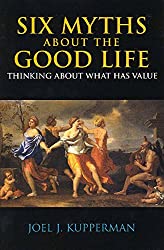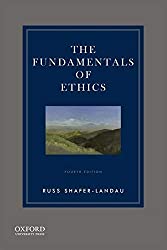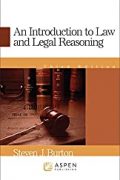
Rating: 7.9/10.
Summary
Fairly short book by a philosophy professor asking “what makes a life good?” This is a fundamental question for ethics because any ethical theory must assume some kind of utility function (what is good for an individual) before it can consider what’s best for society as a whole. This book examines a few common proposals that are attractive for its simplicity, and discusses the problematic cases for each one.
(Note: the author uses “Myth” here as a synonym for “Chapter”, not that the position is wrong)
Myth 1 talks about hedonism, the theory that the goal of life is to maximize pleasure and minimize pain. Here, pleasure is defined as a momentary positive state. However, most of us wouldn’t want to trade places with a perpetually ecstatic clam, and Csikszentmihalyi’s research found that people were happiest when they were in a state of “flow” — being engaged in a skilled activity. Additionally, we get used to pleasure and comfort (this is called the hedonistic treadmill).
Myth 2 considers the view that happiness (global positive sense about one’s life) is what gives life value, rather than short-term pleasure. Happiness as defined is closely tied to self-esteem. Problem is when someone is easily satisfied with life, but others might view it as a defective state. Also, if working towards something gives us happiness, then one would need to be at least partially unhappy to bother expending the effort to achieve it, which contradicts the claim that maximal happiness is desirable.
Myth 3 considers goals of reaching some kind of “equilibrium point”, where all major problems are resolved (like graduation or retirement), after which we’d be happy. This ignores that life continues after this point, and you can focus on the goal too hard and lose sight of the present. Many Eastern philosophies advocate for a mild preference for success, while also enjoying the present.
Myth 4 argues that arguments about value systems are not purely deductive. You have to stop at some point and make a value judgement that something is “reasonable”, which shouldn’t be confused with logical reasoning. Our value judgements are ultimately based on emotion: what gives us feelings of distaste or subjective well-being.
Myth 5 discusses virtue ethics: the idea that virtue (behaving morally under difficult circumstances) contributes to happiness. Virtuous people may not look like their life is desirable (eg: Book of Job), but still gain satisfaction from being virtuous. This is not to be confused with being nice, as nice people do immoral things to please others (eg: in the Nazi regime).
Myth 6 asks whether virtue needs to be perfect. Probably not, since you’d need to be perfectly moral all the time, which no human is capable of. In reality, we may be more virtuous in some areas than others. Most of us don’t often face hard moral decisions, so a virtuous person is someone who can consistently make moral decisions when confronted with difficult cases.
The last chapter talks about the nature of moral knowledge: can we really know what has value? One way to have knowledge is if you’ve experienced it, and thus know that it’s good or bad. Likely, value knowledge is partial, there are some easy cases that everyone agrees on (eg: prolonged extreme pain is bad) but no sign of convergence on more difficult cases.
Thoughts
Overall, it’s a thought-provoking book that makes some good points, and draws from not only Western philosophy, but also Indian and Chinese texts. I’m surprised at some of the positions that the author chooses to attack (true virtue must be perfect, really?) There’s only a brief chapter about the nature of moral knowledge and not much consideration for nihilism (the position that no value system is better than any other).



